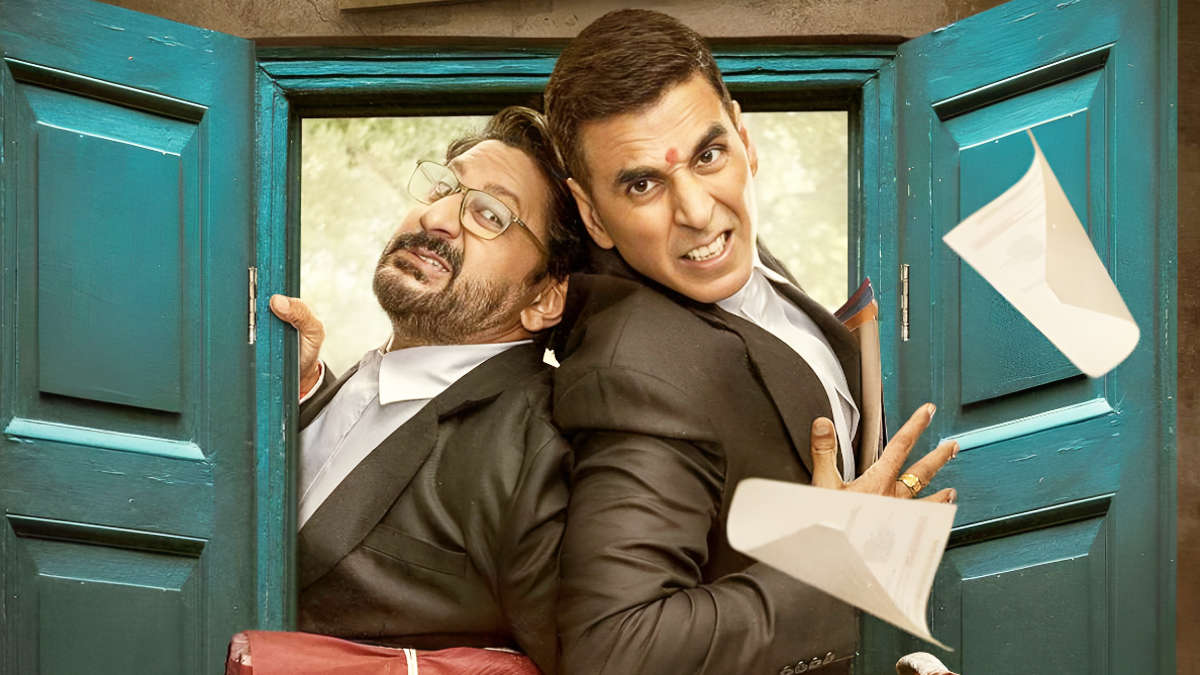Movie: Jolly LLB 3
Director: Subhash Kapoor
Cast: Akshay Kumar, Arshad Warsi, Saurabh Shukla, Amrita Rao, Huma Qureshi, Seema Biswas, Gajraj Rao, Ram Kapoor
Theatrical Release Date
Run Time: 2hrs 37mins
The third installment of Subhash Kapoor’s Jolly LLB franchise shifts the battle of wits to Bikaner, Rajasthan, where a farmer, Rajaram Solanki, refuses to part with his ancestral land for industrialist Haribhai Khaitan’s ambitious “Bikaner to Boston” project. After losing his case in a local court and being falsely maligned with accusations of illicit relations with his daughter-in-law, Rajaram succumbs to despair and takes his own life. His widow, Janki Rajaram Solanki (Seema Biswas), refuses to surrender to the system and pursues justice with unyielding resolve. Her determination sets the stage for the unthinkable—convincing both Akshay Kumar’s Jagdishwar “Jolly” Mishra and Arshad Warsi’s Jagdish Tyagi to take up her cause, drawing them into a courtroom confrontation that becomes the film’s driving force under the watchful eye of Judge Sunder Lal Tripathi (Saurabh Shukla).
Looking back at the franchise’s trajectory, the original Jolly LLB introduced Arshad Warsi as the scrappy Delhi lawyer whose brush with a high-profile hit-and-run case exposed the rot of privilege, corruption, and inefficiency in the legal system, with humour and moral grit shaping its impact. The sequel shifted to Lucknow, with Akshay Kumar stepping in as Jagdishwar Mishra and raising the stakes through a widow’s fight against fake police encounters and wrongful killings, a narrative sharpened by pointed commentary on state power, religion, and systemic inertia while retaining satirical flair. In Jolly LLB 3, Kapoor delivers both Jollys together, creating a unique conflict where the two constantly spar, representing divergent approaches to justice—one rooted in idealism, the other in pragmatism. This “double Jolly” format offers continuity for fans through the return of familiar faces like Judge Tripathi and the wives, Sandhya (Amrita Rao) and Pushpa (Huma Qureshi), while refreshing the dynamic with a rivalry that soon evolves into reluctant teamwork.
The thematic pivot this time is land usurpation and the misuse of the legal system against marginalized farmers, a subject that resonates with contemporary anxieties about industrialization and displacement. The first half plays lighter, leaning into the comic banter of the two lawyers vying for clients, before the second half gradually deepens into courtroom gravity, where humour sharpens the absurdities of the system without undermining the stakes. Dialogues cut to the bone, from references to farmers’ suicides and the inadequacy of MSP to Judge Tripathi’s striking remark about the “letter and spirit” of the law. Even fleeting mentions, such as making agriculture a compulsory subject in schools or recalling the Green Revolution, leave the audience with pointed reminders of farmers’ centrality to India’s future.
Yet the film is not without flaws. The script is built with convenience, never allowing one Jolly to outshine the other, and in striving to balance them equally, it risks feeling formulaic. The absence of a truly formidable courtroom opponent blunts the dramatic edge, with Haribhai’s menace felt more outside the court than within it. Still, the widow’s plight is handled with weight and conviction, keeping the emotional core intact and anchoring the narrative beyond the lawyers’ sparring.
Ultimately, Jolly LLB 3 is entertaining in parts and socially relevant in essence. It may not carry the freshness of the first film or the sharper bite of the second, but it draws attention to the widening urban–rural divide, the anxieties of land acquisition, and the inequities between the affluent and the marginalized. Subhash Kapoor retains his signature blend of satire, humour, and moral crusade, and while the execution is uneven, the film resonates beyond fiction by reminding us, in its concluding notes, just how deeply farmers remain woven into the lives of everyone.
Jolly LLB 3

3.5
